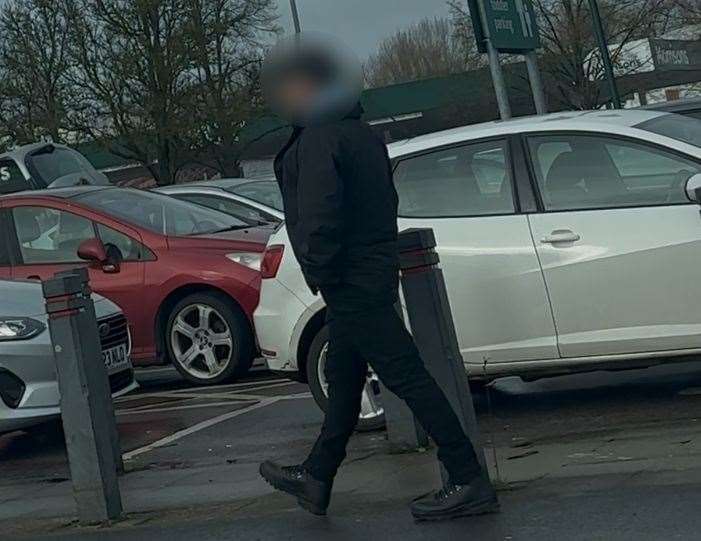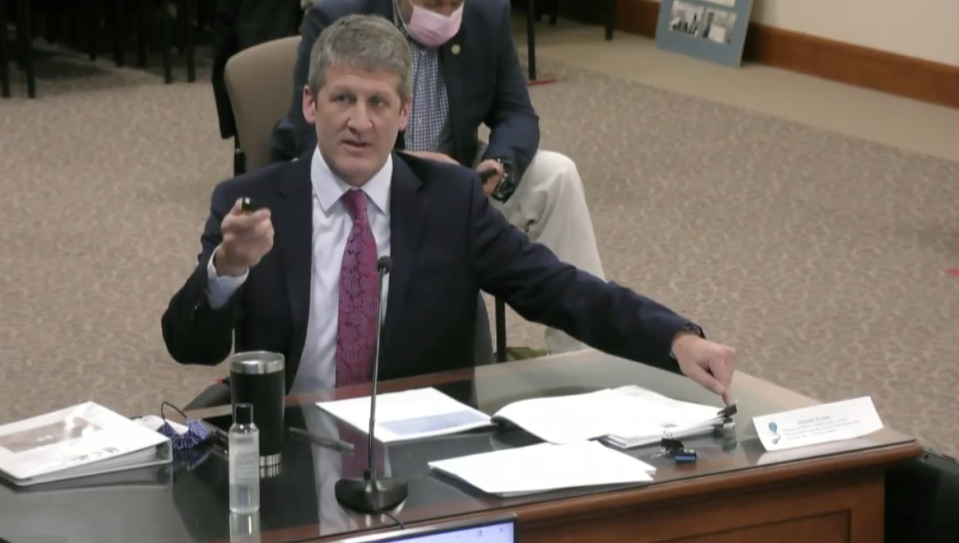Enforcement officers hired to fine litter louts in a Kent district have been accused of spending too much time targeting “easy pickings” on out-of-town retail parks.
So-called ‘litter police’ from National Enforcement Systems (NES) are contracted by the council to help keep the streets of Canterbury, Herne Bay and Whitstable clean.
But residents claim they are instead focusing their efforts on private car parks near supermarkets and shops, where officers are regularly seen confronting offenders.
Critics say it is creating a “serious imbalance” in the offences being targeted, with a KentOnline investigation revealing just four fines have been issued in two years for fast food-related rubbish – and 5,637 to smokers discarding cigarettes or cigars.
David Kemsley, who is a committee member of the Oaten Hill and South Canterbury Association, believes it is an indication of where priorities lie.
“The fact that so many fines are given for dropping cigarettes, but not for fast-food wrappers and chewing gum, shows that NES is not targeting the high street and tourist areas,” said the retired NHS manager.
“That is a gross distortion of priorities in any World Heritage Site city, or any other city for that matter.
“The focus seems to be on easy pickings in private car parks and cigarette ends.
“The enforcement officers should be in the city centre and not just working daylight hours.
“They should be really addressing the problems that are caused by the fast-food outlets there. The numbers speak for themselves.”
Figures obtained by KentOnline show that of the 5,838 tickets issued by NES between April 2022 and April 2024, 97% were for dropping cigarette or cigar ends.
Across the same period, just three people were fined for discarding chewing gum and four for fast-food rubbish – both issues blighting the district’s high streets.
In an effort to find out where fines are being dished out, KentOnline asked Canterbury City Council (CCC) for the location of each £200 fixed penalty notice (FPN) issued.
It initially said this data is not recorded when a ticket is issued, but after our reporter disputed this the authority said it had made an error and confirmed the information is held.
But it refused to release the information because it would mean checking all FPNs individually, exceeding the amount of hours deemed acceptable under Freedom of Information rules.
The authority – which receives 30% of every fine – went on to argue it is “perfectly reasonable” for enforcement officers to patrol private land, arguing that litter discarded in places such as retail parks can blow onto public streets.
It added that officers spend a “far greater percentage of their time on public land such as the high streets and coastline”.
However, when asked how it could be sure of the movements of NES staff, it could not provide any supporting data but said it “100% stands by” this assertion.
Canterbury resident Emma Jaynes was among those fined for dropping a cigarette end outside the Morrisons supermarket on the Wincheap Retail Park.
While fully accepting she should not have discarded the butt, she agrees with those who believe litter enforcement in private car parks should be the responsibility of the landowners and not council contractors.
“The officers should be targeting tourist areas like Canterbury High Street, the beaches and towns,” the 43-year-old added.
A KentOnline reporter recently visited the same retail park and witnessed four enforcement officers working in pairs from two separate cars.
At the same time, the top of Canterbury High Street was littered with fast-food wrappers.
Mr Kemsley, a retired NHS manager, says a more visible presence of enforcement officers in the city centre would “work wonders”.
“The aim of this exercise should be to tidy up the city, not necessarily make money,” he said.
“I can quite understand why people whose objective is to make as much money as they can resort to covert tactics, trying to catch people out for minuscule offences.
“They know that if they were up and down the city centre, they probably wouldn’t gain as much income because people would see them and be aware of them.”
He also poured cold water on the council’s justification that litter dropped on private land could blow onto public streets, branding it a “spurious argument”.
But CCC, which contracts NES at no cost and raked in more than £143,000 from fines issued in the two-year period, has defended the policy.
A spokesman said: “Our view remains that these car parks and retail parks get high footfall and suffer from lots of discarded litter, which often then blows onto public land, and with support from the landowners, patrolling and issuing fixed penalty notices is perfectly reasonable.
“And this is only a small portion of the enforcement work our contractor carries out, with a far greater percentage of their time spent on public land such as the high streets and coastline.
“So we pay little attention to those who criticise us for our litter enforcement work, safe in the knowledge that we have the wider public backing in our efforts to keep the district looking the very best it can.
“And as we always say every time we are asked about this – if you don’t want to receive a fine, don’t drop litter. It really is that simple.”
The authority also says it makes “absolutely no apology” for its tough approach on cigarette butts.
“Cigarette filters are the most commonly littered item in England, making up 68% of all littered items and it costs UK local authorities around £40 million per year to clear them up,” she said.
“And chucking a cigarette butt on the floor quite clearly demonstrates a behaviour trait. If you can do that with a butt, what else are you happy to throw on the ground? Receiving a fine will surely make you think again in the future.”
Away from litter, NES also issued fines for dog-related offences, including seven to people failing to pick up after their pet and 15 for having a dog off a lead.
#Canterbury #City #Councils #litter #police #accused #targeting #easy #pickings #retail #parks








Leave a Reply